Music, Performance
Rully Shabara
Raung Jagat: Drone of Colours
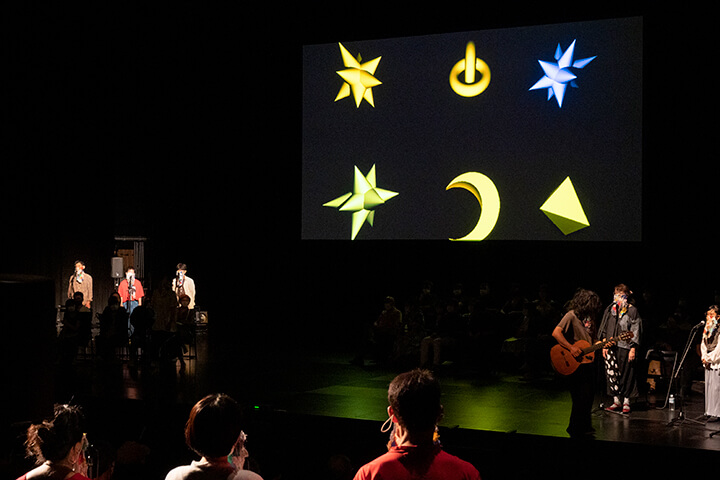
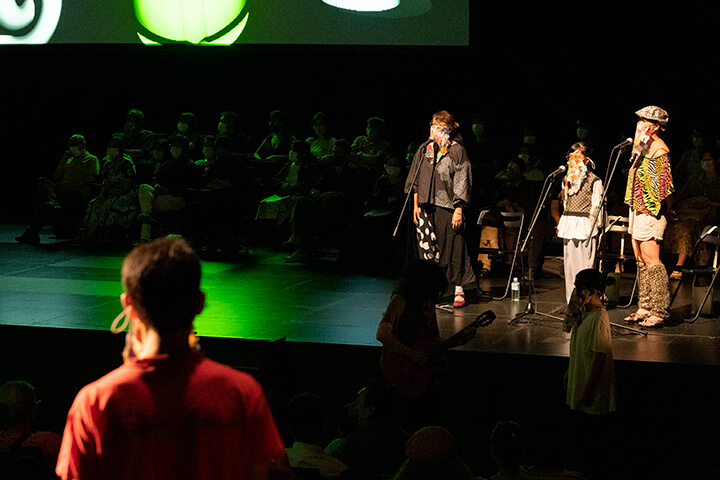
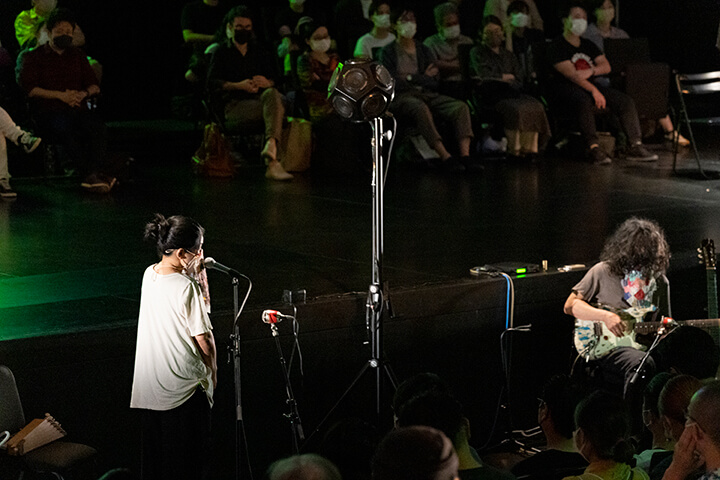
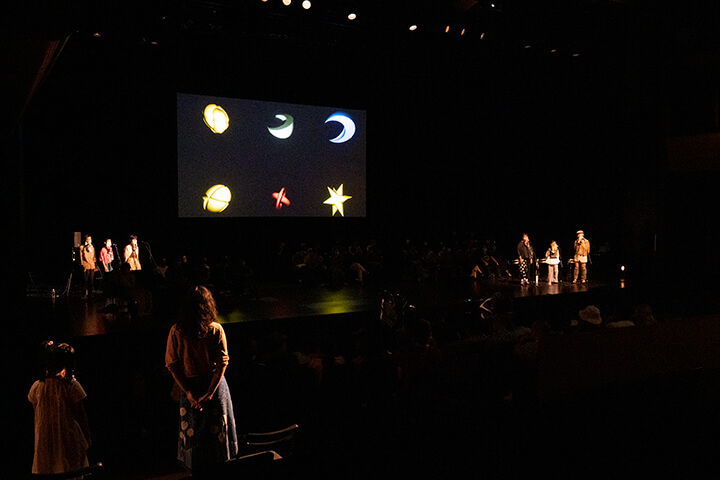
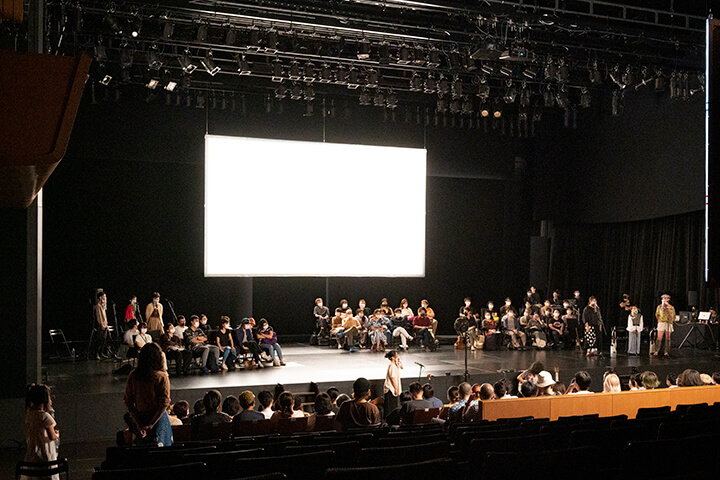
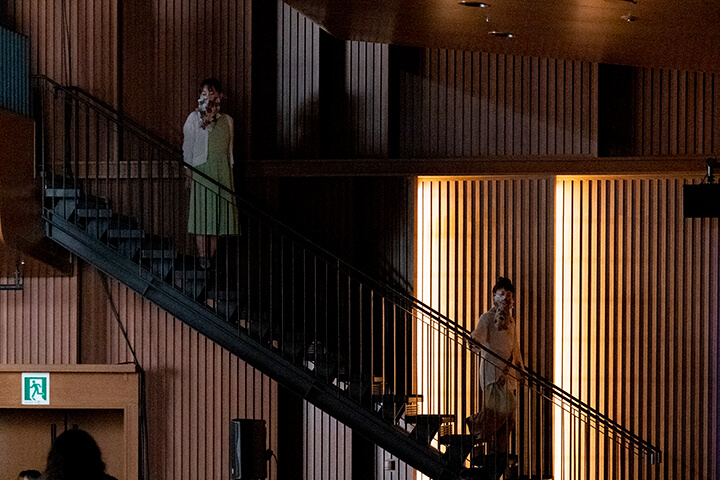
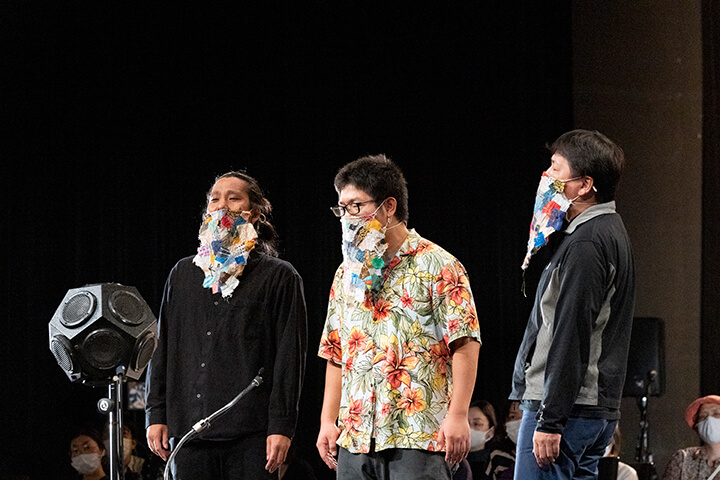
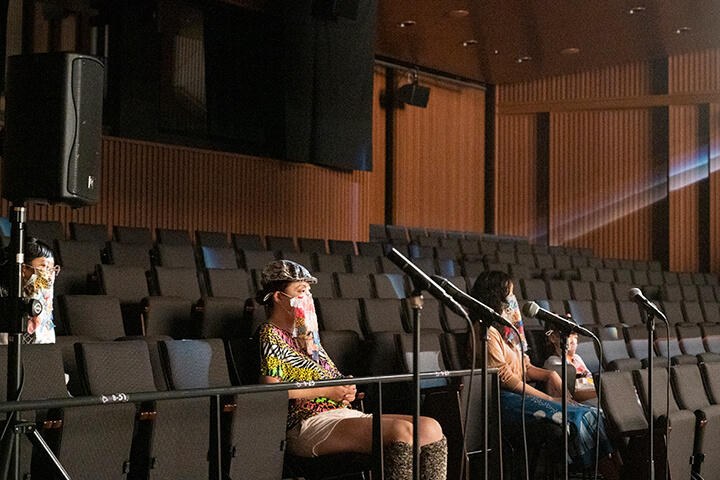
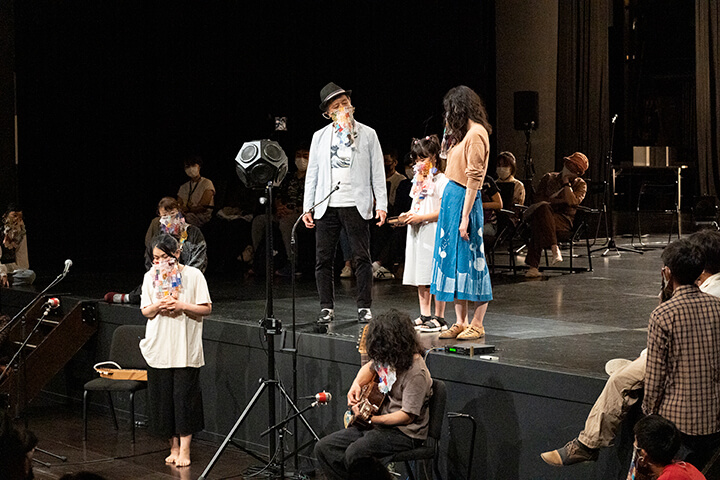
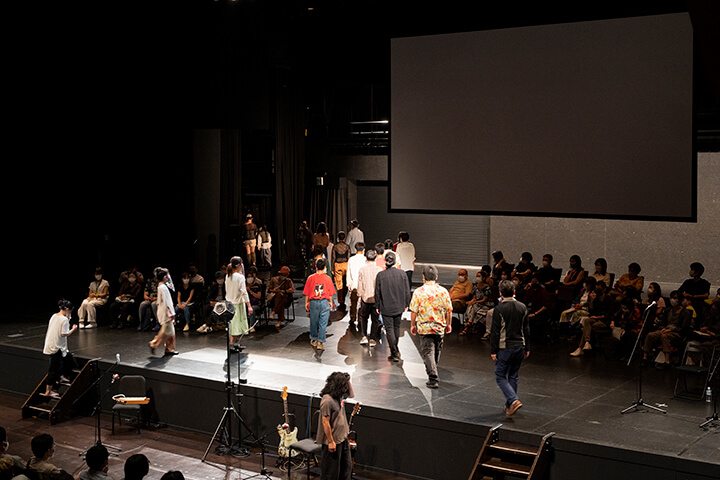
Democratizing the voice?! Yogyakarta and Kyoto share a remote improv session
Based in Yogyakarta, Indonesia, Rully Shabara is a member of the experimental music duo Senyawa and lead vocalist for his band Zoo. For this year’s program, he presents a new performance using Raung Jagat—his own improvisational chorus system—along with performers selected through an open-call and Tenniscoats, a band known for its many collaborations. Given coronavirus travel restrictions, Shabara notably embarked on a new challenge to create the piece remotely, staging a conductor-free performance with the singers, and director Jun Tsutsui. Using an AI-powered color system as an improvisational springboard, the participants develop jam sessions by independently changing their words (or sounds) and rhythms, and playing with the ways their voices resonate. Elements of “drone music”—extended sounds with no change in pitch, which often appear in traditional and folk music—are also indispensable to this new version of Raung Jagat.
The human voice is our most intimate instrument. “Raung Jagat’s chorus system allows even amateur singers to freely discover their voices. Especially in a setting without a conductor, it can serve as an opportunity to further ‘democratize’ this instrument,” says Shabara. Be sure to catch his work as it utilizes technology and the pandemic’s adversity to enter a new phase of exploring the potential of the voice.
10.9 (Sat) 17:00
10.10 (Sun) 17:00
Duration: 50 min
Doors open 30 min. prior to the performance.
Rully Shabara
Indonesia
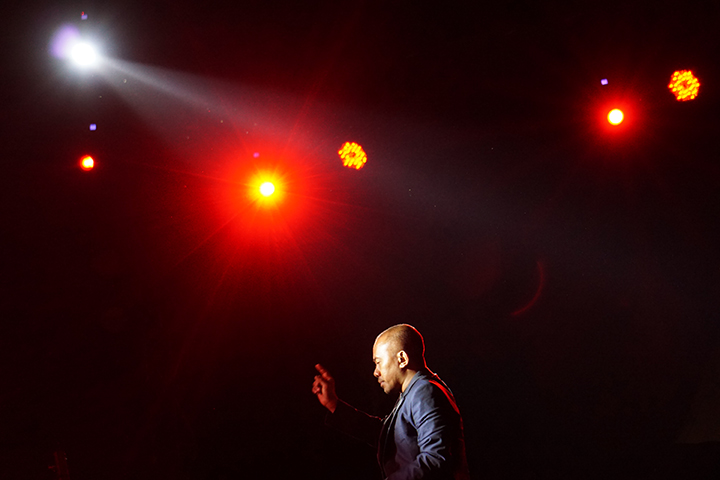
Born in 1982 in Palu, Indonesia, Shabara is interested in exploring the human voice as a medium of creation and language as a subject to experiment with. Shabara is also one half experimental Indonesian duo Senyawa as well as a member of the conceptual punk band Zoo. Shabara has initiated numerous concept-based projects around voice as well as delivered workshops around the globe that focus on using the human voice as a resource to explore primal expression and improvisation. He has also collaborated with many notable international musicians and artists including Keiji Haino, Stephen O`Malley, Otomo Yoshihide, Rabih Beaini, Damo Suzuki, Bob Ostertag, Yoshida Tatsuya, Trevor Dunn, Arrington DeDionyso, Justin Vernon, Jon Sass, DJ Sniff, Daisuke Fuwa and Greg Fox among others. www.rullyshabara.id
Jun Tsutsui
Japan
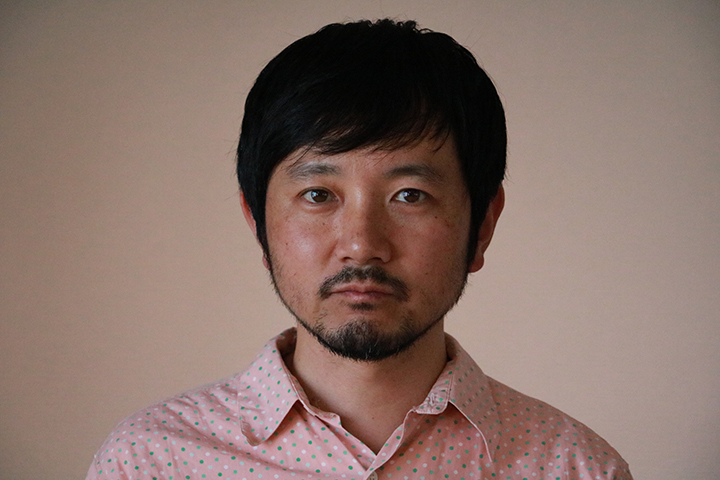
Tsutsui is a director, playwright and leader of dracom. He received the Kyoto Art Center Award of Performing Arts in 2007 and was a senior fellow at The Saison Foundation from 2014 to 2016. His work Sokonaizu-Bottomless was selected as one example of innovative Japanese contemporary theatre for the Segal Center Japanese Playwrights Project in 2018. His works outside dracom include Silent Seeing Toyooka (2016, Kinosaki International Arts Center), Seeping Life (2017, Dance Box) and direction for Sons of Destruction (2018, Kyoto University of Art and Design (currently Kyoto University of the Arts). Tsutsui has also participated in works by Zan Yamashita, Marebito-no-Kai, KIKIKIKIKIKI, Ishinha, Toenkai, Yoshiro Hatori, akakilike, Akuma no Shirushi, Ho Tzu Nyen and Araki Masamitsu. He engages in various projects regardless of genre.
Tenniscoats
Japan
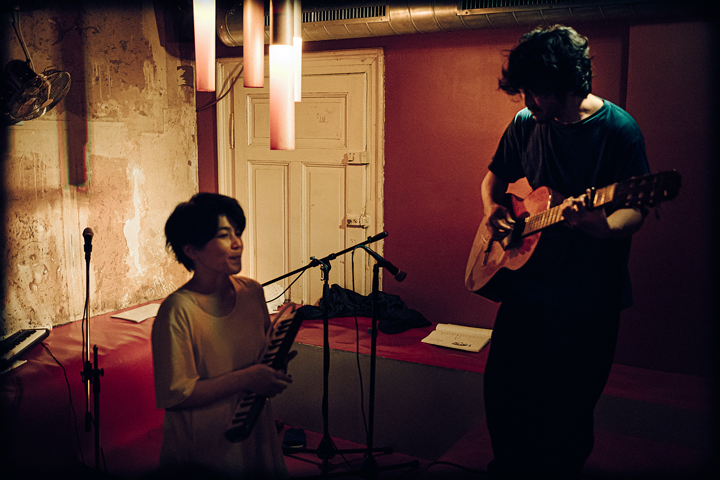
Tenniscoats is a band with two members, Saya & Takashi Ueno, founded in 1996. With voices that sound like instruments and acoustic guitars that sound like voices, the band have travelled around the world. Recently they have been involved in Spirit Fest, a Japanese-German-English band, Zayaendo Music, A Compilation of Japanese Indie Music and Nishinari Children’s Orchestra Workshop. They have released many collaborative albums, riding on their collaborators musical base while sublimating into their music. They launched “minnakikeru.com” in 2020.
Concept, Direction: Rully Shabara
Software Design: Louis Marcellino, Rangga Purnama Aji
Spatial Direction: Jun Tsutsui
Musicians: Tenniscoats
Cast: Nanako Ishihara, Saori Oka, Yumi Kambayashi, Eri Qubo, Hatsune Sakai, Maki Tani, Sakurako Nakajima, Rica Nakajima, Ken Nakamura, Yulia Nakamura, Hidemichi Nishihara, Youichi Hazama, Kyoko Bandoh, Yuji Fukuda, Keiko Fujimoto, Shintaro Hori, Yuichiro Matsuda, Kazushi Murakami, Masako Yamamoto, Yuumi Yoshii
Stage Manager: Masaya Natsume
Lighting: Rie Uomori (kehaiworks), Hitomi Kiuchi
Sound: Ryo Yoshida, Hirokazu Mabuchi
Video: Yoshitaka Shimada, So Fukuoka
Mask creation and design: Chie Ohno
Interpreter: Natsu Kashiwamoto
Production Coordinator: Kei Saito (ROHM Theatre Kyoto)
Produced by Kyoto Experiment
Assistance from Kyoto City Board of Education
Supported by The Agency for Cultural Affairs Government of Japan through the Japan Arts Council and National Arts Council, Japan Foundation for Regional Art Activities [Intergenerational Thinking], The Japan Foundation Asia Center Grant Program for Enhancing People-to-People Exchange
Presented by Kyoto Experiment

















